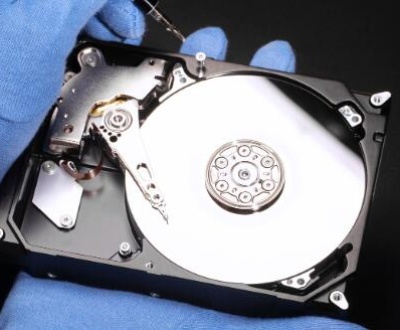It looks like you’re encountering an issue with opening a file named fa.bwt.2bit.64. This file extension and name suggest that the file is related to bioinformatics or sequence data processing, particularly for tools like BWA (Burrows-Wheeler Aligner). Files like .bwt are used in the context of indexing genome data for efficient searching and mapping, especially in sequencing projects.
To resolve the problem and successfully open or process the fa.bwt.2bit.64 file, there are several steps and tools that could help.
1. File Type
The fa.bwt.2bit.64 file likely belongs to a sequence alignment tool, which processes large biological datasets (like genomic sequences). It might be part of a larger index file set produced by BWA or similar bioinformatics software. Here’s what the components of the file name could mean:

fa: This suggests the file might be related to FASTA format, a common file format for storing nucleotide sequences.
bwt: Refers to the Burrows-Wheeler Transform, an algorithm used for data compression and fast searching, especially in genomic data.
2bit: Indicates a format often used for efficient representation of genomic sequences, where each base pair is encoded in 2 bits.
64: Likely refers to the bit depth or the architecture for which the file was processed (64-bit systems).
2. File Context: Bioinformatics Tools
The fa.bwt.2bit.64 file is likely generated by a bioinformatics tool or pipeline. The Burrows-Wheeler Transform (BWT) is frequently used in tools like:
BWA (Burrows-Wheeler Aligner): A tool for aligning sequence reads to a reference genome. It uses the .bwt files as part of its index for quick searching.
Samtools: A suite of tools for manipulating alignments in the SAM/BAM format, which may work with BWT-indexed files.
Bowtie2: Another tool that uses the BWT algorithm for sequence alignment and may require similar files.
3. Steps to Open or Use the File
If you’re trying to open the fa.bwt.2bit.64 file for a specific bioinformatics project or to troubleshoot, here are a few things you can do:
a) Check the File Integrity
Before trying to open the file, verify that it hasn’t been corrupted. If the file was transferred over a network or from a different storage medium, it might have been partially corrupted. You can check its integrity by comparing checksums (e.g., SHA-256 hash) if available.
b) Install Relevant Tools
To process or open .bwt files, you’ll need the appropriate bioinformatics tools. Here are a few installations:
BWA (Burrows-Wheeler Aligner): This is the tool most commonly associated with .bwt files. You can download and install BWA from the official source:
bash
sudo apt-get install bwa # On Ubuntu/Debian-based systems
Samtools: If you plan to work with SAM/BAM files generated by BWA, installing Samtools could be useful:
bash
sudo apt-get install samtools
Bowtie2: If the file is associated with Bowtie2 indexing, install it as well:
bash
sudo apt-get install bowtie2
c) Check File Dependencies
The .bwt file is typically part of a set of index files that BWA or similar tools generate. If you’re missing other files (such as .amb, .ann, .pac, and .sa), the tool might not work correctly. Ensure that you have all the necessary index files for your reference genome.
d) Run BWA for Indexing
If you’re working with a genome or sequence that requires this .bwt file, you may need to regenerate the index files. For example, to create a BWA index, you would use the following command:
bash
bwa index your_reference.fasta
This would generate the necessary index files, including .bwt, for alignment tasks.
e) Use Other Tools
If you’re trying to extract or analyze the sequence data from the fa.bwt.2bit.64 file directly, you might need to convert it or use specific tools that handle 2-bit encoded genomic data.
For example, the twoBitToFa tool (often used in bioinformatics) can be used to convert .2bit files back into FASTA format for easier inspection:
bash
twoBitToFa your_file.2bit output.fasta
If this doesn’t work directly on .bwt files, you may need to look for a tool that can handle the combined indexing and 2-bit conversion.
4. General Troubleshooting
If you’re unable to open the file despite having the correct tools, consider the following steps:
Ensure Compatibility: Make sure that the tools you are using are compatible with the file format. If the file is designed for 64-bit architecture, ensure you are running a 64-bit version of the software.
Check File Paths: Ensure that the file path is correct and accessible. If the file is located on a network drive or an external device, make sure the connection is stable.
Permissions: Verify that you have the necessary read permissions for the file. Use ls -l on Unix-based systems to check the permissions.
Re-download or Re-generate: If the file appears corrupted or incomplete, try re-downloading or re-generating it from the original source.
5. When to Seek Help
If you continue to experience issues with the file, consider reaching out to a bioinformatics forum or a colleague familiar with sequence data processing. Provide details about the software you’re using, your system environment (e.g., OS, version), and any error messages you encounter.
About us and this blog
Panda Assistant is built on the latest data recovery algorithms, ensuring that no file is too damaged, too lost, or too corrupted to be recovered.
Request a free quote
We believe that data recovery shouldn’t be a daunting task. That’s why we’ve designed Panda Assistant to be as easy to use as it is powerful. With a few clicks, you can initiate a scan, preview recoverable files, and restore your data all within a matter of minutes.
Subscribe to our newsletter!
More from our blog
See all postsRecent Posts
- Data recovery salt lake city utah 2025-04-18
- Data recovery sacramento 2025-04-18
- Data recovery miami 2025-04-18

 Try lt Free
Try lt Free Recovery success rate of up to
Recovery success rate of up to









